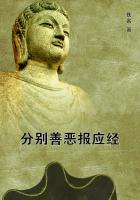And in this kingdom of Bisnaga there is a class of men,natives of the country,namely Brahmans,who the most part of them never kill or eat any live thing,and these are the best that there are amongst them.They are honest men,given to merchandise,very acute and of much talent,very good at accounts,lean men and well-formed,but little fit for hard work.By these and by the duties they undertake the kingdom is carried on.They believe that there are Three Persons and only One God,and they call the Persons of the Most Holy Trinity "TRICEBEMCA."There is another class who are Canarese who have pagodas in which are (images of?)monkeys,and cows,and buffaloes,and devils,to whom they pay much honour,and these idols and monkeys which they adore they say that in former times this land belonged all to the monkeys,and that in those days they could speak.They have books full of fine stories of chivalry,and many foolish tales about their idols,such as it is out of reason for men to believe.But because of this,neither in the kingdom of Bisnaga nor in all the land of the heathen are any monkeys killed,and there are so many in this country that they cover the mountains.There is another class of men called Telumgalle;[648]when these die their wives are buried alive with them.
The King of Bisnaga is a Brahman;[649]every day he hears the preaching of a learned Brahman,who never married nor ever touched a woman.He urges in his preaching (obedience to)the commandments of God,that is to say,that one must not kill any living thing,nor take anything belonging to another,and as with these so with the rest of the commandments.These people have such devotion to cows that they kiss them every day,some they say even on the rump --a thing I do not assert for their honour --and with the droppings of these cows they absolve themselves from their sins as if with holy water.They have for a commandment to confess their sins to the Brahman priests,but they do not do it,except only those who are very religious (AMIGUOS DE DIOS).They give in excuse that they feel a shame to confess themselves to another man,and say that it is sufficient to confess themselves alone after approaching God,for he who does not do so does not acquire grace;thus they fulfil the command in one way or another.But they do it so seldom (in reality)that they (may be said to)neglect this command to confess.
This kingdom of Bisnaga is all heathen.The women have the custom of burning themselves when their husbands die,and hold it an honour to do so.When therefore their husbands die they mourn with their relations and those of their husbands,but they hold that the wife who weeps beyond measure has no desire to go in search of her husband;and the mourning finished their relations speak to them,advising them to burn themselves and not to dishonour their generation.After that,it is said,they place the dead man on a bed with a canopy of branches and covered with flowers,and they put the woman on the back of a worthless horse,and she goes after them with many jewels on her,and covered with roses;she carries a mirror in her hand and in the other a branch of flowers,and (she goes accompanied by)many kinds of music,and his relations (go with her)with much pleasure.A man goes also playing on a small drum,and he sings songs to her telling her that she is going to join her husband,and she answers also in singing that so she will do.As soon as she arrives at the place where they are always burned she waits with the musicians till her husband is burned,whose body they place in a very large pit that has been made ready for it,covered with much firewood.Before they light the fire his mother or his nearest relative takes a vessel of water on the head and a firebrand in the hand,and goes three times round the pit,and at each round makes a hole in the pot;and when these three rounds are done breaks the pot,which is small,and throws the torch into the pit.Then they apply the fire,and when the body is burned comes the wife with all the feasters and washes her feet,and then a Brahman performs over her certain ceremonies according to their law;and when he has finished doing this,she draws off with her own hand all the jewels that she wears,and divides them among her female relatives,and if she has sons she commends them to her most honoured relatives.When they have taken off all she has on,even her good clothes,they put on her some common yellow cloths,and her relatives take her hand and she takes a branch in the other,and goes singing and running to the pit where the fire is,and then mounts on some steps which are made high up by the pit.Before they do this they go three times round the fire,and then she mounts the steps and holds in front of her a mat that prevents her from seeing the fire.They throw into the fire a cloth containing rice,and another in which they carry betel leaves,and her comb and mirror with which she adorned herself,saying that all these are needed to adorn herself by her husband's side.Finally she takes leave of all,and puts a pot of oil on her head,and casts herself into the fire with such courage that it is a thing of wonder;and as soon as she throws herself in,the relatives are ready with firewood and quickly cover her with it,and after this is done they all raise loud lamentations.When a captain dies,however many wives he has they all burn themselves,and when the King dies they do the same.This is the custom throughout all the country of the heathen,except with that caste of people called Telugas,amongst whom the wives are buried alive with their husbands when they die.These go with much pleasure to the pit,inside of which are made two seats of earth,one for him and one for her,and they place each one on his own seat and cover them in little by little till they are covered up;and so the wife dies with the husband.















